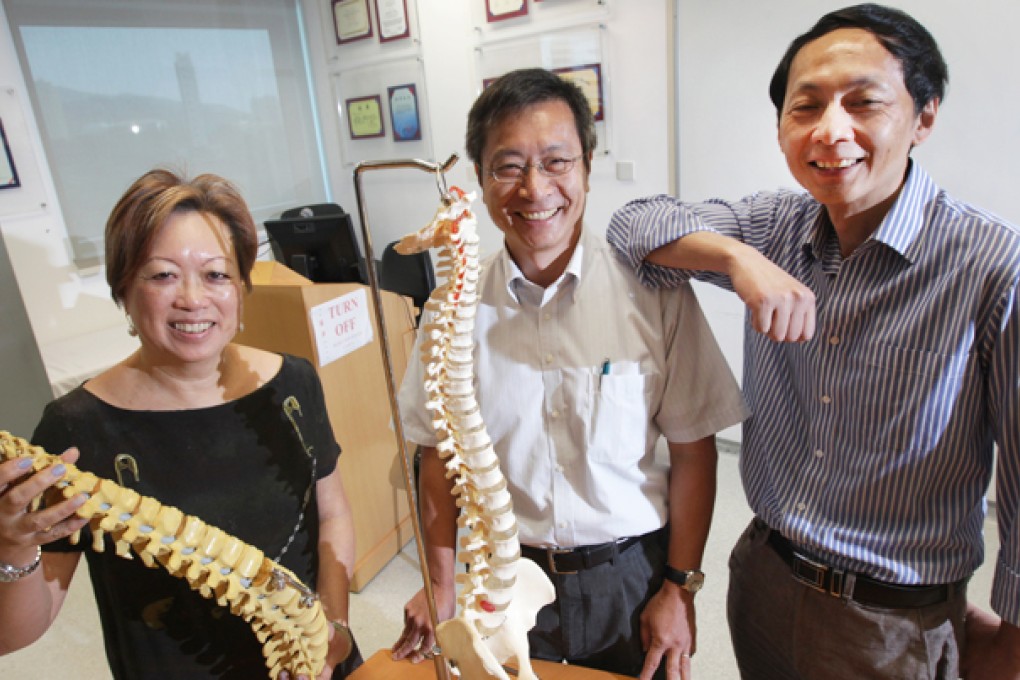Mutated gene found to cause back problem in almost half of Hongkongers: HKU study
HKU study identifies mutated gene that causes increased risk of degeneration to disc in lower spine suffered by nearly half of people in city

Pioneering research at the University of Hong Kong has turned conventional thinking on its head by identifying a mutated gene that causes back pain.
It is generally considered that poor posture and old age are among the major contributory factors to a problem that afflicts nearly half of Hongkongers.
But a 10-year study by biochemists has found a genetic link to the degeneration of the lumbar disc in the lower spine.
One of the patients studied was just 11 years old.
Dr Danny Chan, the associate professor of biochemistry who led the research, told the South China Morning Post: "Bearing the mutated gene can increase by 30 per cent the risk of developing lumbar disc degeneration.
"If your mother or father has the gene, there is 50 per cent chance you may get it, too."